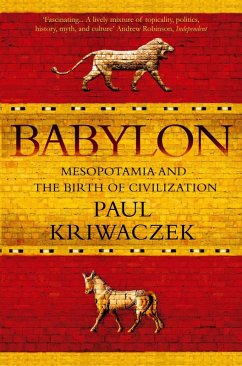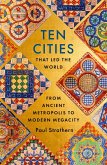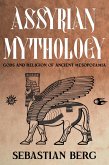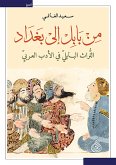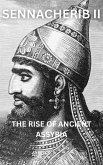At the heart of Kriwaczek's magisterial account, though, is the glory of Babylon - 'gateway to the gods' - which rose to glorious prominence under the Amorite king Hammurabi, who unified Babylonia between 1800 and 1750 BC. While Babylonian power would rise and fall over the ensuing centuries, it retained its importance as a cultural, religious and political centre until its fall to Cyrus the Great of Persia in 539 BC.
Dieser Download kann aus rechtlichen Gründen nur mit Rechnungsadresse in A, B, BG, CY, CZ, D, DK, EW, E, FIN, F, GR, H, IRL, I, LT, L, LR, M, NL, PL, P, R, S, SLO, SK ausgeliefert werden.

